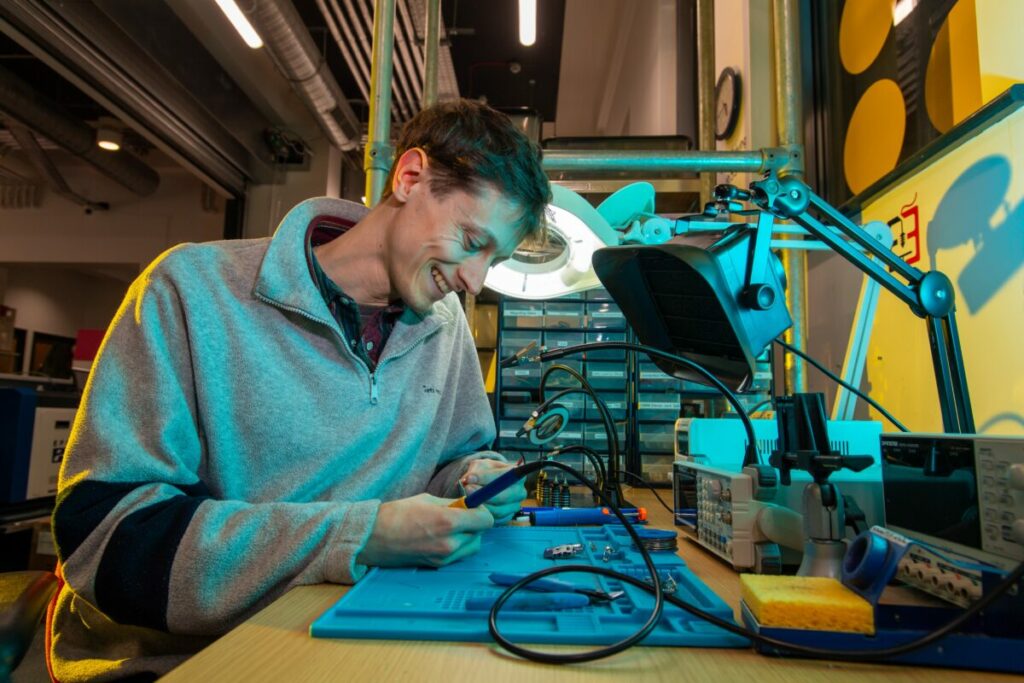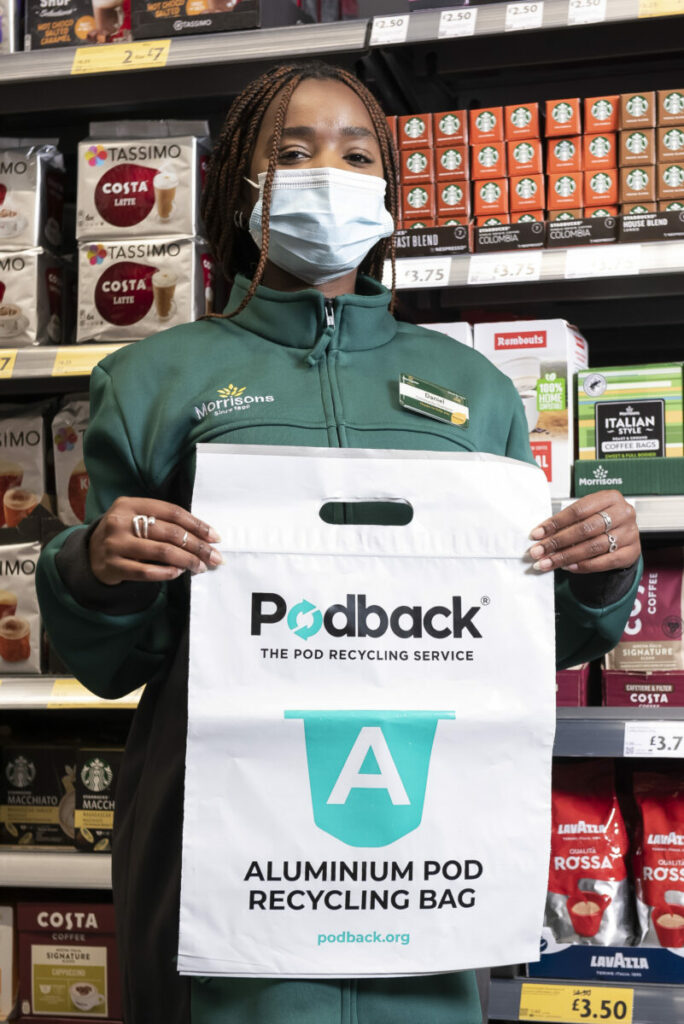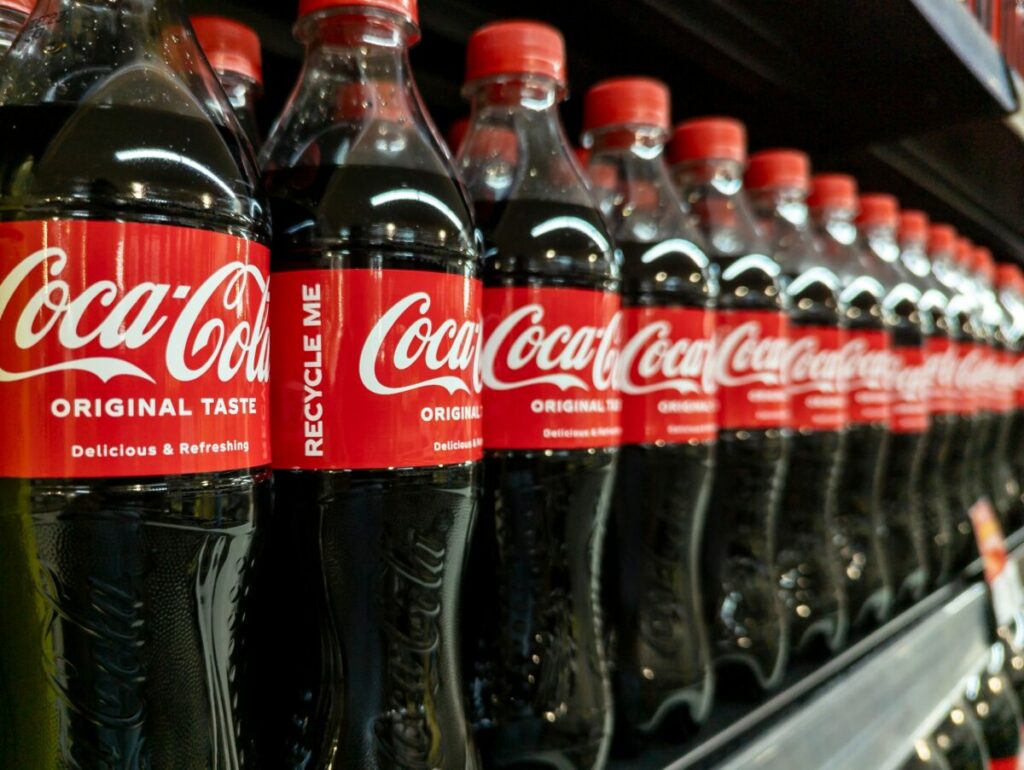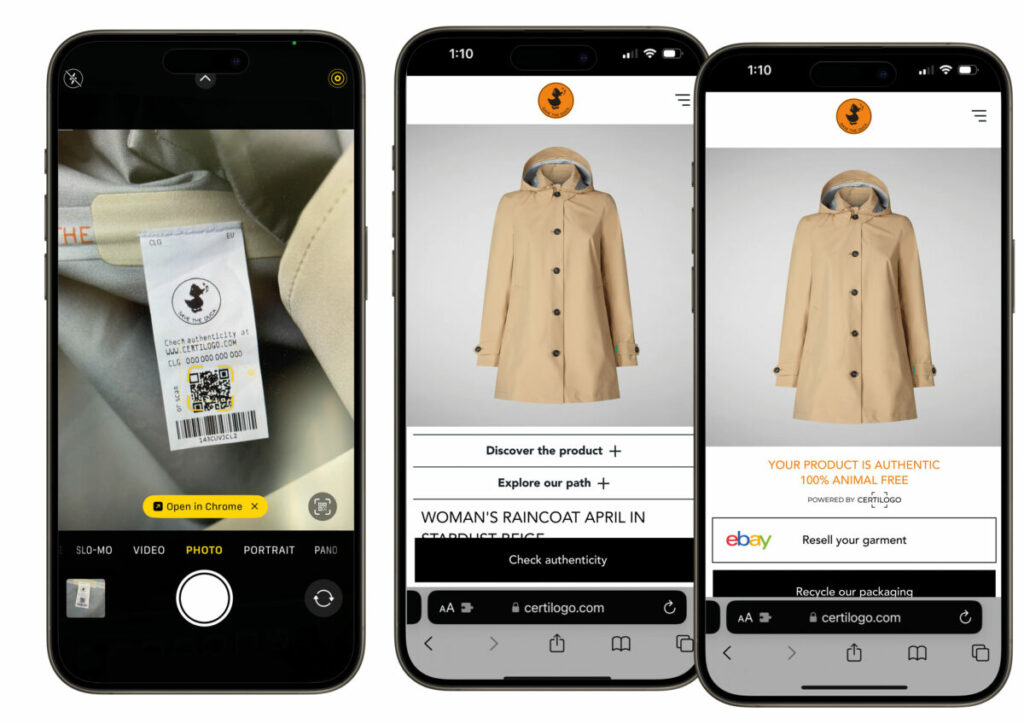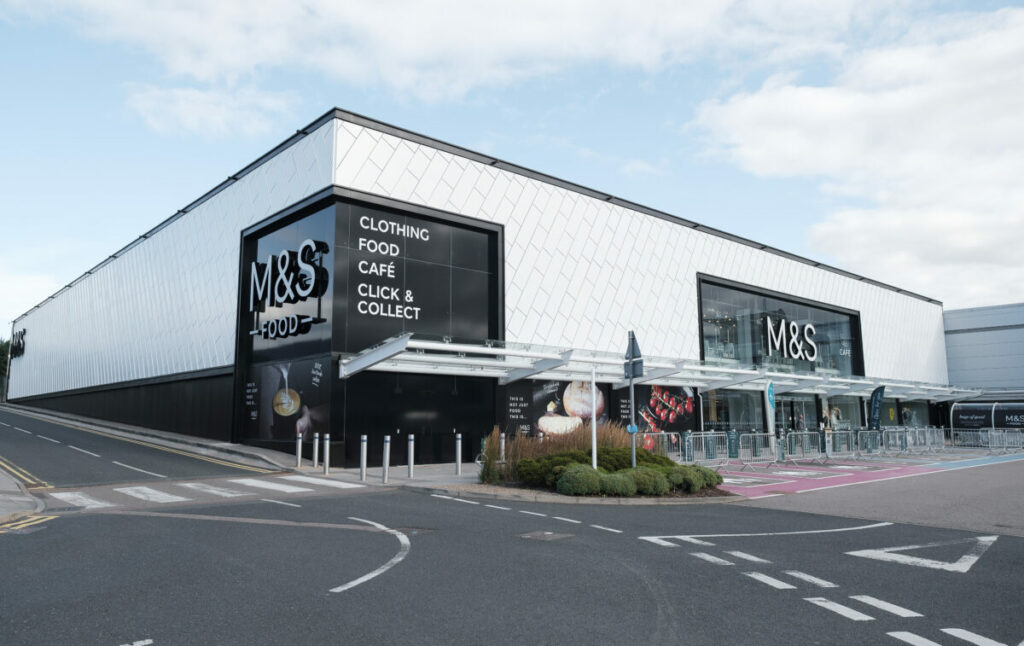The pressure is on for all industries to transition to more sustainable practices but especially in grocery and FMCG where packaging waste tends to be at the core of conversations.
In 2019, the UK’s biggest supermarkets produced around 900,000 tonnes of plastic packaging, a number they are looking to significantly reduce.
As supermarkets and FMCG brands push ahead in the sustainability game, many packaging initiatives to reduce waste have been introduced.
Sprite goes naked
![]()
Coca-Cola is currently trialling new label-less Sprite and Sprite Zero bottles.
The labels are replaced with an embossed logo on the front of the pack, with laser-engraved product and nutritional information appearing on the back.
While existing labels are fully recyclable, it removes the need to separate them from the bottles during the recycling process and reduces the amount of packaging material used overall.
Coca-Cola Great Britain VP franchise operations Dusan Stojankic said: “We want to help create a future where plastic drink packaging will always have more than one life.
“Labels contain valuable information for consumers, but with the help of technology we can now trial other ways to share this information while reducing the amount of packaging we use.
“Going label-less might seem like a small step, but it is one of several ways we are exploring making recycling easier, minimising waste, and minimising the impact of our packaging on the environment.”
Subscribe to Sustainability Beat for free
Sign up here to get the latest sustainability news sent straight to your inbox everyday
Absolut Vodka’s paper bottle
Elsewhere in the world of beverages, Absolut Vodka trialled a single-mould paper bottle in Tesco last year in a step towards creating a 100% bio-based bottle and reducing its CO2 emissions.
The bottle sparked controversy, with Circuthon Consulting founder Paul Foulkes-Arellano stating “it’s like calling a ham sandwich vegan, as 57% is bread”.
“The vodka is in contact with a polyethylene naphthalate (polyethylene 2,6-naphthalate) bottle which is 43% by volume of the bottle.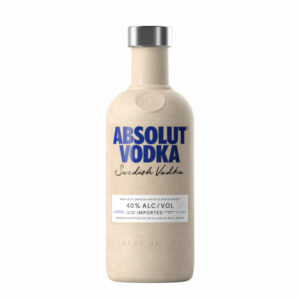
“PEN (as it’s known colloquially) is a polyester derived from naphthalene-2,6-dicarboxylic acid, and ethylene glycol,” he added.
In response to the controversy Absolut future packaging director Elin Furelid said: “We are all learning from one another and there is no perfect solution yet on the market.
“In our case we are using a specific technique with Paboco. The benefit of our single-mould paper bottles is that they require no post-assembly.
“[This] reduces the amount of energy and material required during the production process – it is the paper that holds up as a bottle, rather than the inner lining.”
Six months on from the trial, the alcohol company stated that feedback was “positive”, and customers “appreciated the initiative”.
Absolut acknowledged there was some concerns due to sogginess and how the bottle would hold up but found the scepticism “disappears” once customers use the bottle.
The bottle is currently being tested on long-distance shipping. Absolut is also planning on developing a new paper-based bottle with a reduced plastic barrier that will be 85% paper, with potentially a fibre cap too.
Clear milk caps
Over the past year, many of the UK’s leading retailers have switched from coloured to clear milk caps to improve the recyclability of their milk cartons.
First to make the move was Waitrose which made the permanent change to its milk bottles in June 2022, followed by Aldi, Lidl, Co-op and most recently Tesco, with 3,900 extra tonnes of recycled plastic able to go back into making new bottles each year.
Ultimately, the change allows the supermarkets to improve the quality of recovered material from household waste and enables the new caps to be recycled back into milk bottles.
Meat vacuum packaging
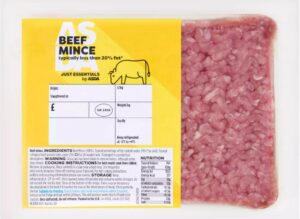
Another trend that has been rolled out across supermarkets is the removal of traditional plastic mince trays for vacuum packets.
The vacuum-pack method of packaging removes the oxygen in products which typically causes a product to eventually spoil, meaning it has a longer shelf life than before.
Sainsbury’s was the first retailer to introduce similar packaging in March 2023, saving 450 tonnes of plastic annually.
It faced a backlash however, with consumers complaining that the meat turns to “mush” when opened.
A string of other retailers, including, Tesco, Lidl, Aldi, and Co-op have since rolled out similar packaging.
Asda is the latest supermarket to roll out the packets that will help it remove 67.6 tonnes of plastic from its supply chain annually.







